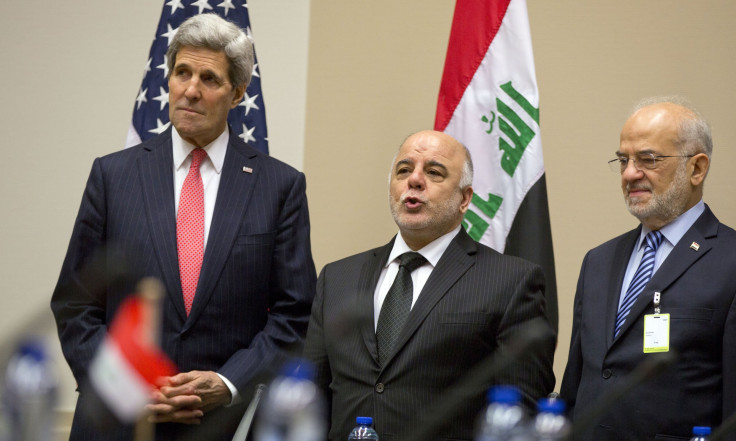Anti-ISIS Coalition Meeting: Kerry Credits US Airstrikes With Weakening Islamic State

The U.S.-led coalition against the Islamic State group also known as ISIS has inflicted significant damage on the militant organization’s capabilities, U.S. Secretary of State John Kerry said on Wednesday. Kerry specifically pointed to the 1,000 airstrikes carried out by the coalition so far in Iraq and Syria as contributing to the effort to weaken the group’s leadership, according to Reuters.
The U.S. began launching airstrikes against ISIS in August following a massive territorial advance by the group in Iraq. While anti-ISIS forces in Iraq, including the country’s military, Kurdish forces and Sunni tribal fighters, have made some gains in heading off the group, Kerry said that the fight “will be measured most likely in years,” Reuters reported.
Kerry’s comments came at the start of an anti-ISIS coalition meeting, which included Iraq's Prime Minister Haider al-Abadi and several foreign ministers from European and Arab countries, according to Gulf Today. It was the first high-level diplomatic meeting of the 60-member coalition. The group convened at NATO headquarters in Brussels, though Kerry emphasized that the meeting wasn't a NATO event.
Absent from the proceedings was one other notable anti-ISIS force: Iran. On Tuesday the Pentagon confirmed for the first time reports that the Islamic Republic had recently conducted airstrikes against ISIS targets in eastern Iraq. Tehran and Washington have both denied that they are working in coordination with each other. "Nothing has changed about our policy of not coordinating military activity with the Iranians,"Pentagon Press Secretary Rear Admiral John Kirby said in comments reported by NBC.
Despite their shared goals, Iran hasn't been invited to join the U.S.-led coalition and has said that it wouldn't join if invited. The Sunni Gulf states that make up the backbone of the Arab presence in the coalition, including Saudi Arabia and the United Arab Emirates, are deeply suspicious of the Islamic Republic, according to the Guardian.
© Copyright IBTimes 2024. All rights reserved.












